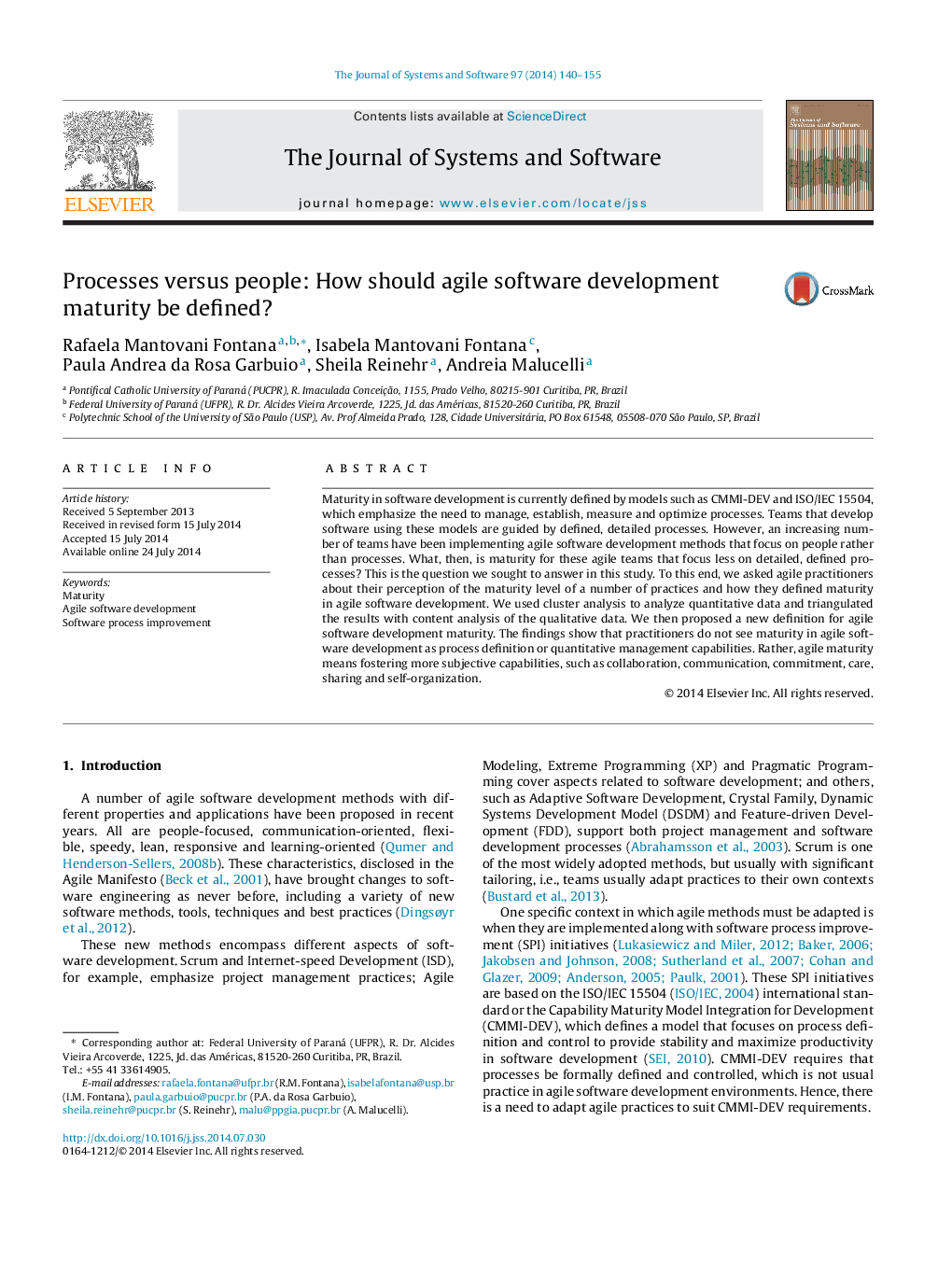| Article ID | Journal | Published Year | Pages | File Type |
|---|---|---|---|---|
| 461055 | Journal of Systems and Software | 2014 | 16 Pages |
•Maturity definition in agile software development is not based on detailed process.•Processes are necessary in agile maturity, but based on agile practices.•Agile maturity means enabling more subjective capabilities.
Maturity in software development is currently defined by models such as CMMI-DEV and ISO/IEC 15504, which emphasize the need to manage, establish, measure and optimize processes. Teams that develop software using these models are guided by defined, detailed processes. However, an increasing number of teams have been implementing agile software development methods that focus on people rather than processes. What, then, is maturity for these agile teams that focus less on detailed, defined processes? This is the question we sought to answer in this study. To this end, we asked agile practitioners about their perception of the maturity level of a number of practices and how they defined maturity in agile software development. We used cluster analysis to analyze quantitative data and triangulated the results with content analysis of the qualitative data. We then proposed a new definition for agile software development maturity. The findings show that practitioners do not see maturity in agile software development as process definition or quantitative management capabilities. Rather, agile maturity means fostering more subjective capabilities, such as collaboration, communication, commitment, care, sharing and self-organization.
Graphical abstractFigure optionsDownload full-size imageDownload as PowerPoint slide
